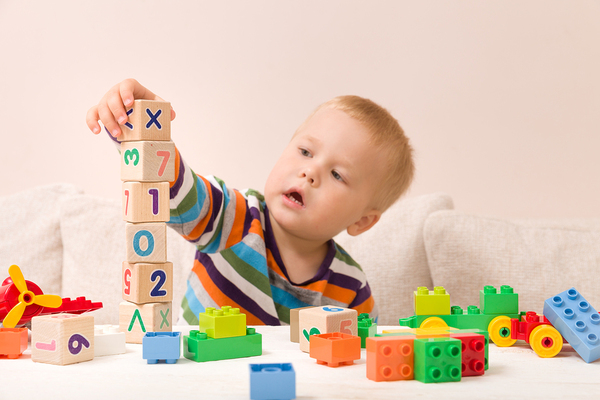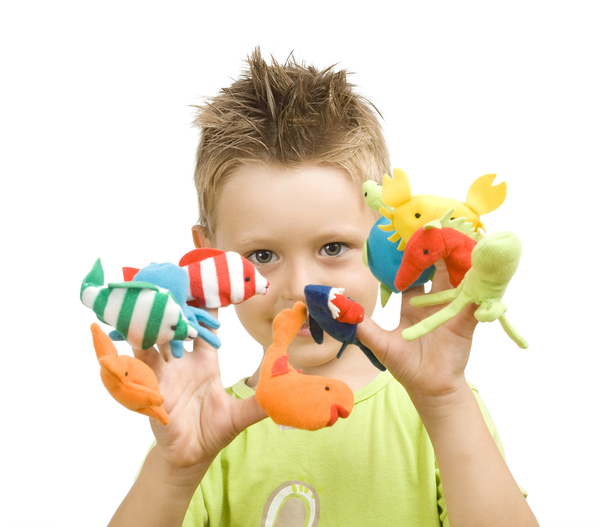When your child picks up their favorite toys or invents an imaginary game, they aren’t just playing; they’re also learning and developing important skills that they’ll use for the rest of their lives. It’s easy to think of play as frivolous, but it’s really a developmental tool that’s so important that the United Nations High Commission for Human Rights recognizes it as a right of every child. Take a look at some of the vital ways that your child’s play activities support their development.
Play Supports Literacy Skills

Even before your child learns letters and numbers, they’re developing the building blocks of literacy through play.
Before your child can recite the alphabet or read their first book, they’re learning the foundations of literacy through play. Simple interactions like mimicking adults or other children teach them the various phonetic sounds that shape their language. In solo play, children test out and practice those sounds by talking to themselves, talking to imaginary friends, or making noises to accompany their play (like saying “vroom, vroom” while pushing a truck across the floor.)
Toddlers who can’t yet read or write letters may still sit with a book and pretend to read a story to their stuffed animals or scribble on paper with a crayon, imagining that they’re signing documents the way they see their parents do. All of these activities prepare your child for learning to read and write later on.
Play Helps Children Develop Social Skills

Simple toys like finger puppets can allow children to act out social situations and practice their own roles and responses.
It may seem obvious that children who are playing with siblings or other children are learning early social skills. Part of the reason parents arrange playdates or enroll their children in daycare is so they can learn to play cooperatively, share, and positively interact with other children.
However, even when your child is playing alone, they’re often experimenting with and testing various roles and social skills. A child who pretends that they’re teaching or parenting a classroom or family of dolls and stuffed animals is learning the basic skill of seeing a situation from another point of view. A child who is making up dialogue and scenarios for their action figures is testing out their conversational and cooperative skills.
Play Develops Gross and Fine Motor Skills
From stacking large wooden blocks to crafting intricate creations out of small Lego pieces, play is one of the major ways that children develop and hone the physical skills that they’ll use for everything from feeding themselves to writing.
Your child may be scribbling with an oversized crayon now, but that scribbling is getting their hands and fingers ready to write with a pencil later on. And while skipping and hopping around the house or backyard may be a fairly simple activity, it’s helping your child develop the balance, muscle strength, flexibility, and coordination that they’ll need later to participate in sports and do physical work.
Your child’s brain and body are both designed to learn and develop through various forms of play, especially in their earliest years. It’s important for parents, caregivers, and teachers to understand the value of play and encourage and facilitate plenty of opportunities for healthy, unstructured play for the children in their care.
